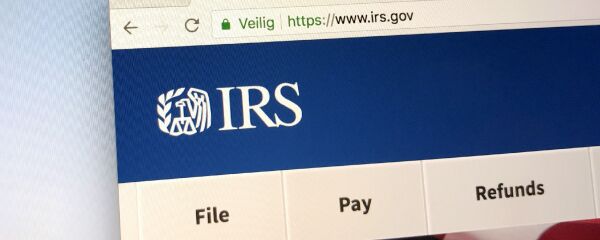“I’m from the IRS and I’m here to help you.”
Yes, that statement is one of life’s big lies. But several years ago, it looked as if the IRS intended to help people with offshore tax problems.
In 2009, the IRS introduced the Offshore Voluntary Disclosure Program (OVDP). The program was designed to encourage US taxpayers to come forward with information about previously undisclosed offshore bank accounts in exchange for reduced penalties.
Learn How to Legally Cut Your Tax Bill
Enter your email below, and we’ll send you a curated list of the most effective tax reduction strategies our clients are using today.
The Nestmann Group does not sell, rent or otherwise share your private details with third parties. Learn more about our privacy policy here.
By signing up for this briefing, you’ll also start to receive our popular weekly publication, Nestmann’s Notes. If you don’t want to receive that, simply email or click the unsubscribe link found in every message.
The 2009 OVDP ended in October 2009 but was re-introduced in 2011 and updated in 2012. Now the 2012 program is about to end. The final deadline to submit an application is September 28, 2018.
This announcement could be very bad news if you’re a US citizen, green card holder, or someone who spends enough time in the US to be considered tax-resident and you have unreported offshore accounts.
Keep in mind that if you spend an average of 123 days annually in the US, you’re likely to be tax-resident. The IRS uses the “substantial presence test” to determine whether you are a tax-resident. The test looks at how many days you have been present in the US over a three-year period:
current year + (last year x .333) + (two years ago x .166) = 3-year presence
At 123 days per year, the calculation would be:
123 + (123 x .333) + (123 x .166) = 183
If you spend 183 days or more in the US over a three-year period using the above calculation, you are considered a resident for tax purposes. Spending 183 days or more in the US in any one year makes you tax-resident as well.
US citizens or green card holders living full-time outside the US also must report non-US accounts to the IRS. For instance, if you live full-time in Canada, and have Canadian bank accounts, life insurance policies, or a pension, you must report all of them to the IRS. You may need to report them on multiple forms.
There’s a summary of the reporting rules in this issue of Nestmann’s Notes.
What are your options if you failed to make any of these disclosures?
If you can’t prove that your failure to report isn’t willful, your best option may be the OVDP. If you’re accepted in this program, the IRS promises not to prosecute you for criminal tax evasion or to impose its most severe civil penalties. Instead, you must pay 27.5% of the highest aggregate values of all your non-US accounts for eight years prior to entering the program. You must also pay back taxes and interest for up to eight years as well as paying accuracy-related and/or delinquency penalties on the unpaid tax.
If you can prove that your failure to make the required disclosures was non-willful, the IRS has three other programs you may wish to consider. Members of our Nestmann Inner Circle Gold will receive the details of these options in an upcoming issue. To learn more about the benefits of the Inner Circle Gold, click here.
Keep in mind that it’s relatively easy for the IRS to prove willfulness. The courts have declared that merely signing a federal tax return without acknowledging reportable foreign accounts is a willful violation of a duty you know – or should know – you have. And if the IRS shows you willfully failed to make the required disclosures, it can impose a fine equal to 50% of the highest aggregate values of your non-US accounts during the period you failed to do so, plus penalties. In rare cases, you could even spend a few years in federal prison.
If you think you can keep your foreign accounts safely hidden from the IRS, think again. The chances of getting caught have increased exponentially in recent years, thanks to laws like FATCA. This law requires foreign financial institutions to provide the account details for accounts held by US citizens to the IRS. If they fail to provide these reports annually, they face a 30% withholding tax on their US-source income. In some cases, this tax can be applied against the gross proceeds of sales for US investments.
Do you have unreported offshore income or accounts? If you do and would like to take advantage of the OVDP, consult with a qualified attorney. An attorney is a better option than an accountant because attorney-client privilege allows you to keep your discussions private. The attorney can then retain an accountant to prepare the necessary returns and decide whether you should participate in the program.
Don’t wait if you think you might be eligible for this program. Again, the final deadline date for applying is September 28, 2018.













